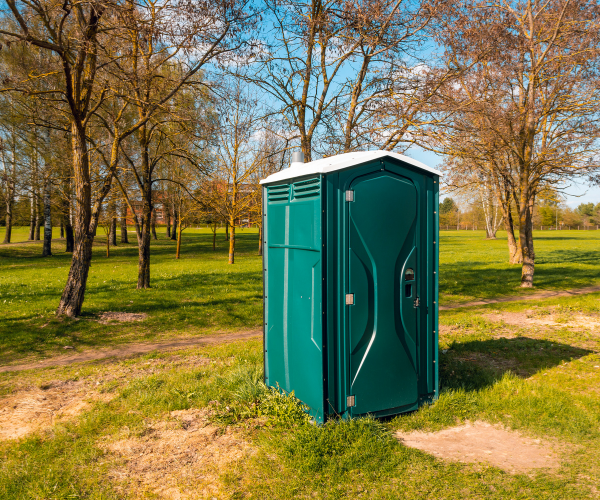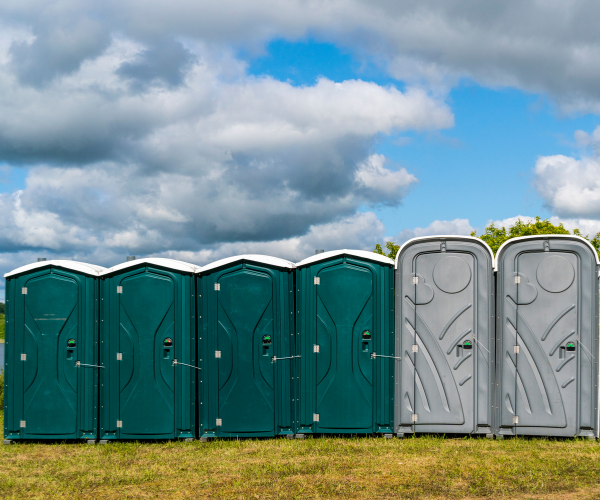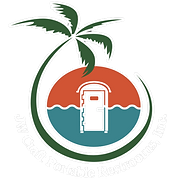Portable toilets present a range of eco-friendly benefits, making them a conscientious choice for temporary sanitation. These units substantially minimize water usage, as they operate with significantly less water than conventional toilets. By employing minimal or no water for flushing, they contribute to conservation efforts, particularly critical in regions experiencing water shortages. Additionally, portable toilets are designed to effectively manage and contain waste, preventing environmental contamination and reducing the likelihood of polluting local water sources. The waste collected in portable toilets is processed and treated at appropriate waste facilities, ensuring that it is handled in an environmentally responsible manner. This approach minimizes landfill contributions and often includes recycling components such as plastics from the units themselves. The materials and chemicals used in the construction and maintenance of portable toilet units are chosen for their environmental safety, minimizing ecological impact while ensuring effective sanitation. Companies dedicated to improving their sustainability footprint often utilize bio-friendly cleaning agents and deodorizers, ensuring that portable toilets remain clean and odor-free without harming the environment. The innovative design of many modern portable toilets includes ventilation to enhance air circulation inside the unit, reducing the need for chemical deodorizers and improving user comfort. Furthermore, the mobility and compact design of portable toilets reduce transportation emissions during delivery and retrieval, particularly pivotal in large-scale events where multiple units are deployed. This demonstrates their capability to fit into densely populated spaces, reducing the need for extensive infrastructure changes or expansions that can disrupt ecosystems. As a convenient and sustainable solution, portable toilets play a role in environmental stewardship while providing crucial user benefits.

Portable Toilet Rentals in DeSoto County, Florida
Call today for a free quote (239) 402-7239
Portable Toilet
Fast, Easy, & 100% Free To Get Started
Decades of Experience
With more than two decades of experience, our company stands as a trusted presence in DeSoto County. We specialize in providing top-tier Portable Toilet services, demonstrating our enduring community ties and unwavering commitment to excellence.
Reliable and Clean
Our portable toilets are meticulously maintained to meet the highest standards of cleanliness and reliability. We ensure a pleasant experience for every user, making us the top choice for sanitation needs.
Prompt and Efficient
We pride ourselves on our swift delivery service, ensuring that your portable toilets arrive on time and ready for use. Our efficient logistics make us a leading provider of portable sanitation solutions.
Convenient Portable Toilet Options in DeSoto County
Call for a Free Quote Today
(239) 402-7239
Based in DeSoto County, our company leads locally in temporary sanitation services. Our reputation stems from dependable service, top-notch products, and our locally-owned business model. We boast a wide inventory perfect for construction sites, parties, festivals, and weddings, ensuring clean, accessible facilities. Committed to community satisfaction, we extend our tailored solutions beyond DeSoto County to neighboring areas, accommodating any outdoor or large-scale event with precision and care.


Our standard porta john rental units are durable and reliable for any commercial build site, housing development, public works project, or remodel job.Features include dome lighting, grated floors, and an “In-Use” locking mechanism for privacy and comfort. Regularly maintained, inspected, and cleaned by FusionSite at your location.

Developed as an alternative to full ADA-compliant restrooms, the Liberty is a spacious, wheelchair-accessible unit that can also be promoted as a family-sized restroom. Includes a patented flat-floor system for easy wheelchair access and maneuverability.Handrails, paper holder, and rotary latch are designed for simple, intuitive end-user operation.

Portable hand washing stations are essential for keeping your work site sanitary and clean. Features hands-free foot pumps, liquid soap, and paper towels.Perfect for job sites without water hookups, these units can handle hundreds of washes between services.
We Proudly Serve
Standard Portable Toilets
JW Craft offers standard portable toilets in Florida, ideal for any local event or site.
High Rise Portable Toilets
High Rise Portable Toilets in DeSoto County, Florida offer convenient sanitation solutions for elevated construction projects.
Restroom Trailers
Experience comfort with JW Craft's spacious restroom trailers in DeSoto County.
Roll off Dumpsters
JW Craft provides reliable roll-off dumpsters for efficient waste management in DeSoto County.
Septic Tank Cleaning
Professional septic tank cleaning services by JW Craft ensure sanitation in Florida.
Grease Trap Cleaning
Efficient grease trap cleaning services in DeSoto County by JW Craft maintain hygiene standards.
Fencing & Barricades
JW Craft delivers sturdy fencing and barricades for every event's security needs in Florida.
Residential Storage
Convenient residential storage solutions offered at DeSoto County, exclusively by JW Craft.
DeSoto County Portable Toilet and More
Acquiring a quote for portable toilet rentals is straightforward and tailored to your needs. Start by completing the quote form via prominent 'Get A Quote' buttons located throughout our webpage; provide your essential details such as name, contact details, and event specifics. Once submitted, our responsive team will review your requirements and dispatch a detailed quote promptly. We prioritize swift follow-up because ensuring you receive timely and relevant information is our mission. Additionally, our local expertise enables fast and efficient delivery, often accomplished within hours, accommodating last-minute requests as required. Thanks to our flexible scheduling and robust logistics network, securing a portable toilet has never been easier. We are steadfast in our commitment to providing reliable services, ensuring that no aspect of renting should cause you delay or concern.

Immerse in the local charm of DeSoto County with our Portable Toilet services, tailored to meet your specific requirements. Hosting events amidst this area's stunning natural beauty demands dependable sanitation that effortlessly blends into the surroundings. Our units fit seamlessly into any environment, from the lush greenery of DeSoto Park to the bustling Arcadia All-Florida Championship Rodeo grounds, ensuring cleanliness and ease without compromise. We support DeSoto County's vibrant community spirit by providing portable toilet solutions for outdoor events like community cookouts and nature hikes. Our promise is to preserve the natural appeal while elevating guest experiences with our sanitary amenities, perfect for any occasion. Whether you're reveling in the annual rodeo's excitement or relaxing by a local lake, our portable toilets guarantee hygiene is never overlooked. Connect with us to explore how our exceptional services cater specifically to DeSoto County's unique needs and energy.
Discover unparalleled service choices with our portable toilet options crafted specifically for DeSoto County. With an extensive local presence, we stand ready to serve, making sure each personal or recreational event receives utmost attention. Trust forms the foundation of our business, and our client relationships mirror our dedication to exceeding expectations. We emphasize flexibility and offer responsive, personalized solutions, ensuring unmatched customer satisfaction. Choose us for your portable toilet rentals and experience the difference brought by local expertise, community commitment, and professional integrity.
Experience reliability with our efficient Portable Toilet services, designed for quick delivery and hassle-free setup. Our streamlined approach prioritizes your event preparations by handling logistics swiftly. We uphold high standards to provide safety and readiness for all our clients. Our expert team thoroughly cleans and delivers each unit, ensuring consistent quality across every project. From your first inquiry to the final pickup, we offer a seamless, stress-free process, building on our long-standing reputation for excellence. Trust our renowned expertise for dependable solutions that ensure the comfort and convenience of all participants, solidifying our position as a leading provider in this sector.
Learn More About Our Portable Toilet in DeSoto County
Renting a portable toilet for your event or project in DeSoto County is a streamlined and straightforward process. Start by visiting our website, where you'll find the 'Get A Quote' buttons prominently displayed on both the top and bottom of each page. These buttons guide you to our user-friendly form that asks for essential details, including your first and last name, phone number, and email address. Once this information is submitted, our team promptly reviews your needs and responds with a detailed quote. This process ensures that you receive personalized service quickly, setting a solid foundation for a hassle-free rental experience. If you're unsure of the number of portable toilets required for your event or have specific needs, our knowledgeable team is always ready to assist with recommendations tailored to your event scale and type. Our flexible rental terms accommodate both short-term events and long-term projects, providing peace of mind whether you require our services for a weekend festival or a months-long construction project. We pride ourselves on our ability to respond swiftly and accommodate urgent requests, ensuring that your sanitation needs are always met on time. Our commitment to excellent customer service means support is available throughout the entire rental process, addressing any questions or adjusting to any last-minute changes effortlessly.
The delivery timeframe for portable toilet orders can vary based on several factors including demand and location, but we strive to ensure swift and efficient service for every client. Typically, once your order is confirmed, we aim to deliver the units within 24 to 48 hours. This prompt delivery service is integral to our operations, allowing us to effectively manage both scheduled needs and urgent, last-minute requests. Our logistical capabilities are strengthened by a fleet ready to mobilize your order without delay, often arriving ahead of schedule. The specific requirements of your venue or project, such as accessibility or necessary permits, may impact delivery times slightly, but our team preemptively addresses these factors to avoid unnecessary delays. For large-scale events or high-demand periods, such as festival seasons, pre-planning is recommended to secure your desired delivery window. However, our adaptability allows us to accommodate even unexpected increases in demand, reflecting our commitment to outstanding service. Whether the location is urban or remote in DeSoto County, our reliable service ensures your portable toilets are in place and ready for use when needed, maintaining the professional standards we've established throughout the years.
Yes, we can service any type of event or construction services with our extensive range of portable sanitation solutions. Our offerings cater to a wide array of events including festivals, sporting events, weddings, corporate functions, and family reunions. Each unit is designed to seamlessly integrate into the event setting while delivering the highest standards of cleanliness and convenience. We offer luxury restroom trailers that bring a touch of elegance to your event, providing an elevated sanitation experience. For construction sites, our range includes durable porta potties that withstand rigorous use, along with roll-off dumpsters essential for waste management. Additionally, our fencing and barricades are available to ensure safety and organization at your venue, accommodating everything from crowd control to exclusive event zoning. Complementing our toilet units, we offer ADA-compliant units, portable sinks, and hand sanitizer stations, meeting diverse accessibility and hygiene needs. Holding tanks for events requiring non-standard setups further showcase our ability to customize our services. No matter the scale or complexity, our adept team coordinates closely with clients to deliver efficient, customizable solutions, solidifying our reputation as a trusted provider of portable sanitation services.

